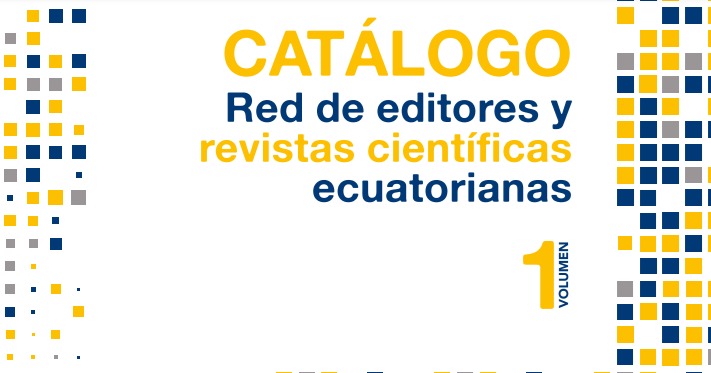THE PERFORMATIVITIES THAT A LEADER GOES THROUGH IN TEACHING
Palabras clave:
Performativity, gender, Education, leaderResumen
This research aims to explain the performativities that a leader goes through in teaching, having as the objective and interest of the study to analyze them, in the access, exercise and permanence in positions of power and academic decision of Ecuadorian teachers. The area of knowledge is Social Sciences, whose research area is gender equity. The methodology is based on a mixed research design, applying a questionnaire, conducting semi-structured interviews with key informants and reviewing documents on institutional policies, plans or programs, management reports or results related to performativities. Quantitative analysis was performed using the SPSS program to identify statistically significant relationships with Chi-square tests. Among the main findings that have been identified is that the links between the institution and the families are generated by the participation that each of them generates in the face of a new role and leadership assumed; what demands the development of performativities such as the social skills required before a new leadership role.
Keywords: Performativity, gender, Education, leader.
RESUMEN:
La presente investigación pretende explicar las performatividades que atraviesa una lideresa en la docencia, teniendo como objetivo e interés del estudio analizarlas, en el acceso, ejercicio y permanencia en los puestos de poder y decisión académica de las docentes ecuatorianas. El área de conocimiento son las Ciencias Sociales, cuya área de investigación es equidad de género. La metodología se sustenta en un diseño de investigación mixta, aplicando un cuestionario, realizando entrevistas semiestructuradas a informantes clave y revisión documental sobre las políticas, planes o programas institucionales, los informes de gestión o resultados relativos a las performatividades. El análisis cuantitativo se realizó mediante el programa SPSS para identificar relaciones estadísticamente significativas con pruebas Chi-cuadrado. Dentro de los principales hallazgos que se ha podido identificar es que los vínculos entre la institución y las familias son generados por la participación que cada uno de ellos genera ante un nuevo rol y liderazgo asumido; lo que demanda el desarrollar de performatividades como son las habilidades sociales requeridas ante un nuevo rol de liderazgo.
Palabras Clave: Performatividad, género, Educación, lideresa.
Recibido: 05 de octubre de 2021; Aceptado: 27 de diciembre de 2021; Publicado: 07 de enero de 2022.
Descargas
Citas
Ball, A. (2008). Performativity and education. New reality, 30.
Bruner, J. (1997). Education, door to culture. Madrid: Machado Grupo de distribución, S. L.
Butler, J. (1997). Gender Performativity. Transformacion social, 20.
Cuervo, Á. A., & Urías Murrieta, M. (2011). Parents' beliefs about participation in their children's education. Scielo, 99-114.
Erickson, E. (1993). Eight Ages of Man. In Childhood and Society, 222-247.
Estrada, F. (October 18, 2005). John Langshaw Austin: Evolution, communication and everyday language. Obtained from John Langshaw Austin: Evolution, communication and everyday language. file:///C:/Users/Jasbeth/Downloads/Dialnet-JohnLangshawAustin-5181395%20(1).pdf
Greswell, G. and. (2008). Methodologies applied to social sciences. Scielo, 180.
Gutierres, C. (August 12, 2006). I lead for social education training. (Consejo, Ed.) Informate, 35.
L.S. Vigoysky. (1988). The Development of Higher Psychological Processes. Selection of Readings on the Psychology of Ages.
Laborda, P. P., Santana López, A., & Vial Lavín, B. (2013). The participation of the family and its involvement in the learning processes of children in school contexts. Diverse: Perspectives in Psychology.
Labourdette, S. (2007). Social relations and power. CONICET, 21.
Marenales, E. (1996). Formal, Non Formal And Informal Education. Topics for teacher competitions.
Oviedo, U. d. (April 16th, 2015). Theories of the acts of speech. Obtained from The Theories of the speech acts: https://digibuo.uniovi.es/dspace/bitstream/handle/10651/42654/TFM_Yin%20Xin.pdf;jsessionid=09BF678AD3B24D9776332305D0758359?sequence=6
Tedesco, J. C. (1998). Education And Society Of Knowledge And Information. Colombian Journal of Education, 36-37.
Xavier, F. (2009). Performativity. Cambio social, 28.
Descargas
Publicado
Cómo citar
Número
Sección
Licencia
Derechos de autor 2022 Revista Científica y Arbitrada de Ciencias Sociales y Trabajo Social: Tejedora. ISSN: 2697-3626

Esta obra está bajo una licencia internacional Creative Commons Atribución-NoComercial-CompartirIgual 4.0.
























